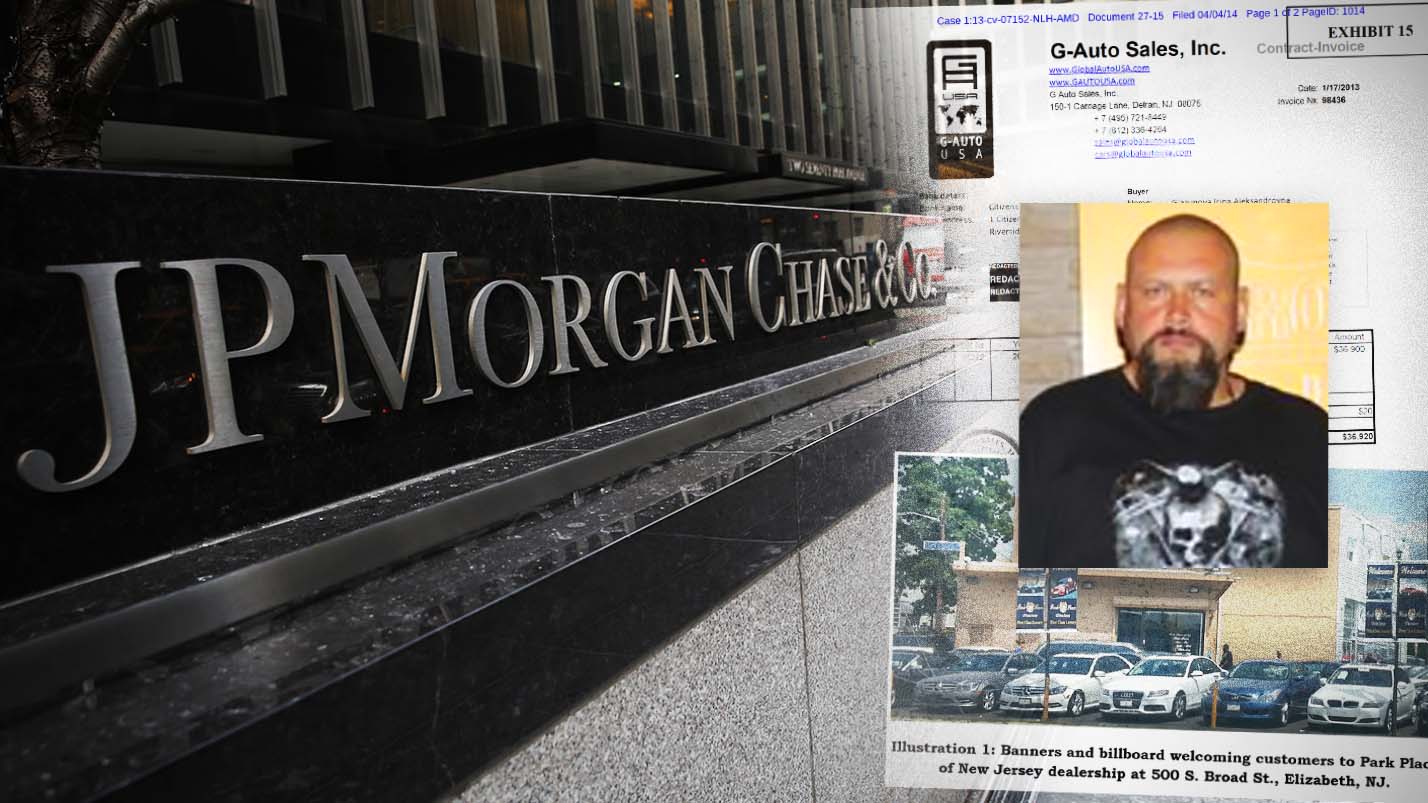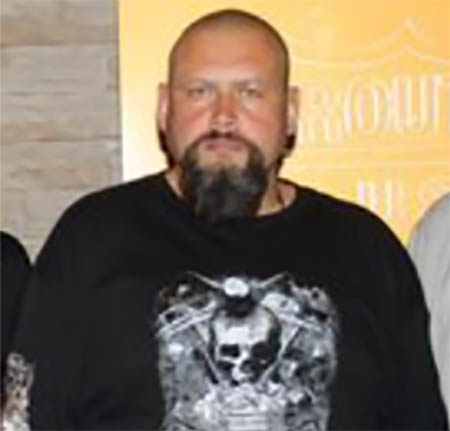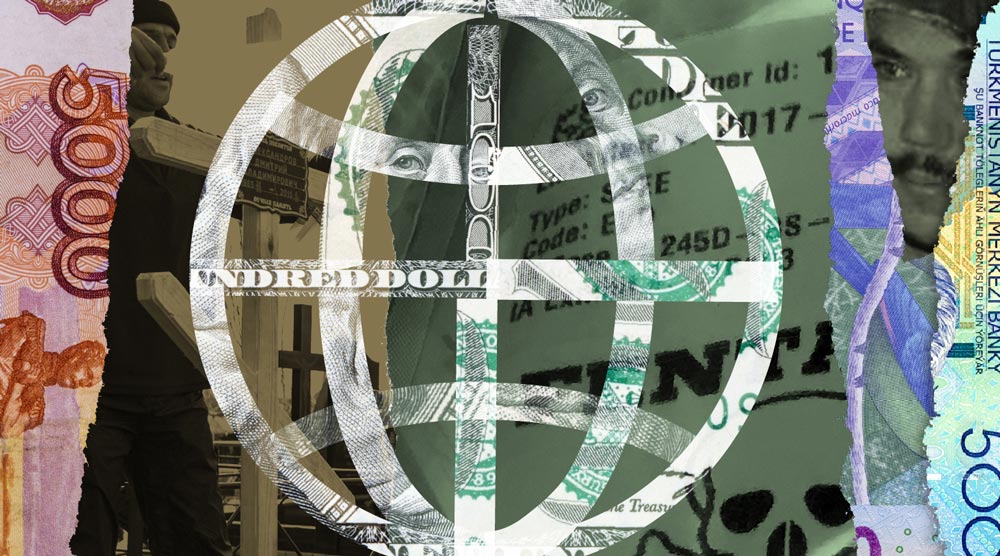The public knew he was crooked in 2009. Big banks helped him stash millions until 2017.
Despite a long record of fraud, a New Jersey con man was able to swindle hundreds of victims around the world who were promised cheap used cars.

JPMorgan Chase, America’s largest bank, helped move millions of dollars for a New Jersey con man long after he was first accused of ripping off customers looking for good deals on the used cars of their dreams.
Many borrowed from family and friends to pay car dealer Sergey Kapustin for vehicles that had been hurricane-damaged or, in some cases, didn’t even exist.
JPMorgan, a Wall Street banking giant, told the U.S. Treasury Department in 2015 that it had moved money for Kapustin, his family members and his companies, according to confidential reports filed with the U.S. Treasury Department’s Financial Crimes Enforcement Network, known as FinCEN.
Two years later, U.K.-headquartered Standard Chartered Bank told FinCEN that it, too, had moved money for Kapustin, according to documents.
JPMorgan and Standard Chartered Bank helped move $9.3 million for Kapustin and his companies after he was first publicly accused of fraud in 2008, according to an analysis of the documents and other records by the International Consortium of Investigative Journalists.
BuzzFeed News provided thousands of leaked FinCEN reports to ICIJ, which coordinated the efforts of more than 400 reporters in the FinCEN Files investigation. The probe revealed that banks continued to profit from moving criminals’ money after promising U.S. authorities that they would crack down on financial crime.
In reporting Kapustin’s story, ICIJ examined leaked FinCEN documents and hundreds of pages of court filings. Reporters spoke with lawyers and victims around the world.
“In my nine years as a judge, I have never seen someone so willing to lie and cheat and steal than you,” U.S. District Judge Noel L. Hillman said in 2015 during a civil case brought by victims against Kasputin.
Years later, a different U.S. federal judge jailed Kapustin for money laundering after he tricked customers in Russia and other former Soviet republics into buying used cars from the U.S. that were not delivered or were damaged by storms.
Kapustin was “cruel,” “cold” and “calculating in taking advantage of these individuals,” U.S. District Judge Susan D. Wigenton said.

Kapustin, 51 and who says he has limited English, asked his daughter, Maria Kapustina, to respond to questions.
“He’s not a bad guy,” Kapustina said. “He didn’t intentionally defraud a bunch of people and lose the business that he built from the ground up.”
The 2007-2008 financial crisis and Hurricane Sandy, which damaged cars that Kapustin was unable to recoup through insurance, sent the company into a tailspin, she said. “He acknowledges that he messed up along the way somewhere and that perhaps he should have gone about some things differently,” Kapustina said.
Kapustina rejects the negative characterizations of her father, who she describes as hardworking, hands-on with customers and unmaterialistic. It can be easy to misread him in court, she said. “He doesn’t smile often, he’s very serious, he’s a big Russian guy…But that’s every stereotypical Russian man.”
Kapustina was eating breakfast at home with her family around New Year’s Day when the FBI came to arrest her father. She was shocked. “You can’t treat any person like that, no matter what they do,” Kapustina told ICIJ. “It was as if you’d just caught a murderer or a mass drug dealer.”
For years before the federal court cases, Kapustin’s victims — hundreds of them — told anyone who would listen that the car salesman was bad news. They grumbled on online chat groups, pleaded with U.S. embassies and the FBI, and hired attorneys.
Kapustin’s reputation preceded him. Various banks, which opened at least 11 accounts for him and his companies, were among the last to notice.
Irina Glazunova, an accountant from the northern Russian city of Murmansk, recalled her last phone call with one of Kapustin’s employees, in 2013. She was trying to locate the second-hand Lexus she’d purchased.
The employee laughed, she said, and told her, “We are crooks.” Then, she said, he threatened legal action: “Come get me across the ocean … and we will sue you.”
Kapustin made use of a ready arsenal of legal threats as he pocketed millions from victims who were promised cheap used cars from the U.S. Some never arrived. Others, snapped up at salvage auctions, had been submerged during Superstorm Sandy in 2012. The victims in Ukraine, Russia and Kazakhstan lost from $6,000 to $65,000 each, according to the judgment in a lawsuit filed by nearly two dozen victims in U.S. federal court in New Jersey.
Kapustin and his accomplices operated “slick Internet websites” advertising bargains on gently used vehicles but often had no cars to sell, the lawsuit claimed. They used images of cars pilfered from other online car-sales sites to lure customers in a “bait and switch” scheme, the suit alleged.

In 2015, Judge Hillman ruled in the victims’ favor and ordered that 17 of them be repaid. For many customers, however, it was already too late. Kapustin’s companies “diverted” money to foreign bank accounts after customers asked a federal court to freeze his assets, victims alleged. Judge Hillman ruled that Kapustin’s companies filed “fraudulent bankruptcies” to avoid payouts.
Glazunova began to suspect that Kapustin was a crook in 2013. A dozen lawsuits alleged that he was as early as 2008. New Jersey’s attorney general said Kapustin’s car dealership had knowingly misled customers in a 2009 false-advertising complaint.
Despite the trail of allegations, JPMorgan and Standard Chartered moved Kapustin’s money — even after U.S. authorities fined the banks and placed them on probation for helping other criminals move illicit funds.
It’s impossible that the banks didn’t know. Everything was on the public record. — Lawyer Anna Brown
In all, according to court and bank records, at least two other banks with U.S. operations allowed Kapustin to shift cash through their accounts: Wells Fargo Bank and Rhode Island-headquartered Citizens Bank.
“The first thing my clients did was complain to their banks,” said Anna Brown, who represented Glazunova and others in the federal lawsuit in New Jersey, filed in 2013. “It’s impossible that the banks didn’t know. Everything was on the public record.”
JPMorgan, Standard Chartered, Citizens Bank and Wells Fargo declined to answer questions for this story.
In 1998, Kapustin moved to New York City from Moscow, where he operated a car dealership. Within a year, the goateed father of four bought Global Auto, which sold used cars from a small lot in Delran, in central New Jersey. He became a U.S. citizen and sold used cars domestically and overseas, including to a niche market in the former Soviet Union, where customers perceived American car dealers as more trustworthy than local ones.
Kapustin grew wealthy and invested in a Finnish motel, Motel Road 66, near the Russian border. The motel holds a Summer Bike Fest where young women shake golden pom-poms while men arm wrestle and rev motorcycle engines loudly. The festival stage is decked out in Finnish, American and Confederate flags.
Two New Jersey residents alleged in 2008 civil complaints filed in state court that he and others had doctored car sales contracts. One victim said her signature was forged on a document to require an additional payment of more than $11,000 after she had paid nearly $30,000 for a used BMW.
Kapustin and his companies denied wrongdoing. The cases were settled confidentially.
Henry Furst, the attorney for both plaintiffs, said he raised the car dealer’s past with Bank of America. He remembers asking, “How could you deal with this guy when all of these cases were chock-full of fraud?”
Holding banks accountable requires financial resources and know-how that most victims of car scams don’t have, Furst said.
“These are people earning $18 an hour,” Furst said. “They just need a car to get to work or to transport their kids. And they’re going to fight Bank of America?”
Bank of America declined to respond to questions about its relationship with Kapustin.
Months after the first New Jersey complaint against Kapustin, a Spanish customer paid for a white Mercedes, according to state court records. Kapustin took the money, and then told the customer that the car was no longer available because of “customs issues,” but he did not refund the payment, according to the complaint. Kapustin denied wrongdoing and settled out of court.
“Mr. Kapustin’s version of events was ridiculous,” the victim’s attorney, Carolyn Gilinsky, told ICIJ. He “depended on his victim’s unwillingness to undertake the expense and effort necessary to pursue an international fraud claim.”
Gilinsky said she is not surprised that banks worked with Kapustin after the 2008 accusations. “I always work under the assumption that most laws are written by banks and insurance companies and they are written in a way so that they always win,” Gilinsky said.
The same year, New Jersey’s attorney general filed a false-advertising complaint against one of Kapustin’s companies that sought to force an end to “unfair or deceptive acts.” The company misled customers about prices, failed to disclose damage to vehicles and persuaded one person to sign a blank sales document, according to the complaint.
The company, Global Auto Inc., settled with the state and paid $123,000 in penalties and legal costs. It denied wrongdoing and did not make restitution to victims.
Kapustin was released from prison in October. He now lives off $182 per week unemployment benefits, his daughter said.
The early New Jersey court cases were resolved through “a common understanding” after “full disclosure” during the sales process, Kapustina said. The state’s law sides with customers, she said. “It was very easy for us to seem like the bad guys.”
Kapustina rejects allegations that her father filed fraudulent bankruptcies to avoid repaying debts. “There were no offshore companies and no secret bank accounts,” she said. No one working for her father would have said they were crooks, Kapustina said.
The FinCEN documents indicate that JPMorgan called attention to Kapustin activities seven years after the 2008 New Jersey fraud cases.
In October 2015, JPMorgan alerted FinCEN to almost $4 million in wire transfers, from January 2012 to September 2014, tied to Kapustin, his family and his companies. Standard Chartered reported its suspicions in June 2017 after having worked with Kapustin and others until at least September 2015.
The eight names that JPMorgan sent to FinCEN match people and companies that attorney Anna Brown listed as defendants in 2013.
Banks often file suspicious activity reports in response to negative publicity, court cases or government inquiries. It is unclear why JPMorgan and Standard Chartered alerted FinCEN when they did.
In December 2016, U.S. prosecutors announced criminal charges against Kapustin. “Bank records from Kapustin accounts, beginning as early as January 2009, reflect wire transfers from dozens of victims, and the absence of any apparent refunds,” according to an FBI affidavit related to the case.
Mikhail Matveev, a manager at British American Tobacco in St. Petersburg, Russia, lost $14,920 on a Honda SUV that wasn’t delivered. “I have a disabled child and I needed the car for my child’s transportation to the hospital, day-care center and rehabilitation facilities,” Matveev said in an affidavit.
Matveev borrowed money from family and friends to buy the car. He never received a refund.
Other victims included a Russian truck driver earning $500 a month, a retired military officer, a jazz musician and a Kazakh engineer who is the father of a child with a severe brain disorder. The engineer borrowed money from his mother to buy a $21,000 Honda that never arrived, he told the court.
In March 2018, Kapustin pleaded guilty in federal court to one count of money laundering. He agreed to repay more than $1 million to at least 61 victims with individual payments as high as $89,960 and as low as $2,920. One year later, during sentencing, he apologized for his behavior.
The judge told him that he had gotten off lightly.
Glazunova, the Murmansk accountant, said she hadn’t received a penny despite two U.S. judges’ orders that entitled her to more than $150,000 in monetary and other damages.
Glazunova came to the United States and testified against Kasputin before a grand jury. Other victims called Glazunova to share their stories, she said, including a young woman who said that her mother had suffered a stroke and her father had died of a heart attack after learning that they had been cheated.
Glazunova bristles at the memory of hearing during the trial that he used victims’ money to send one of his children to a modeling school that cost $200,000. The Kapustin family says it never paid such money or sent children to such a school.
“He spat in our face,” she said. “The bottom line is, I think we lost after all.”



